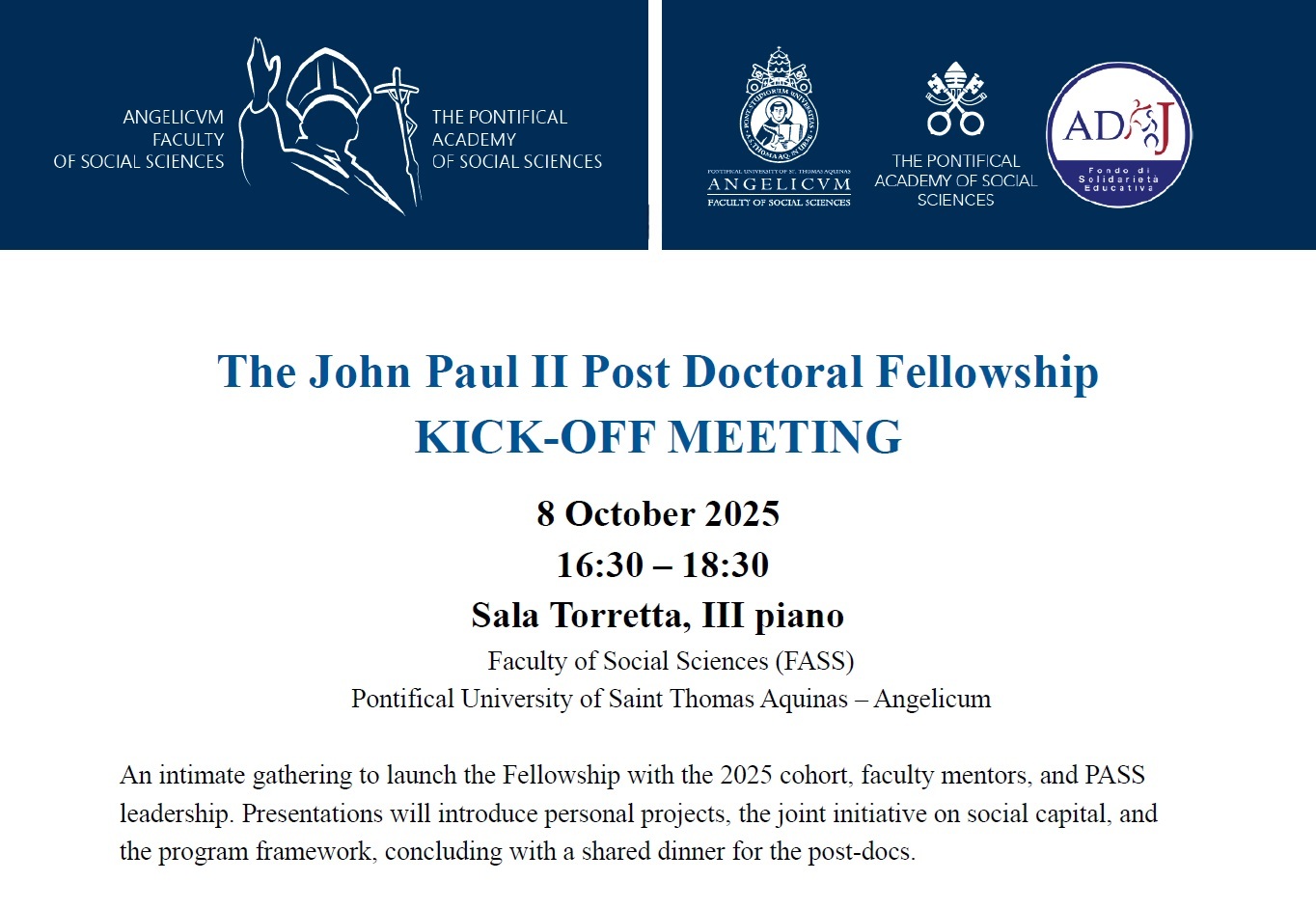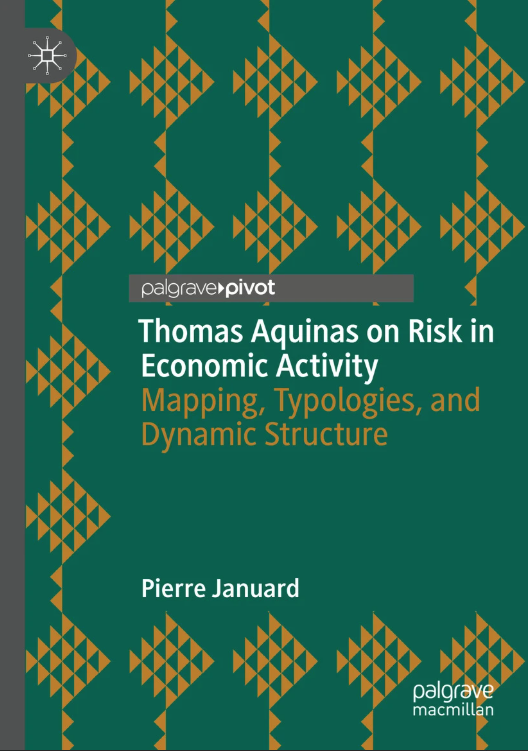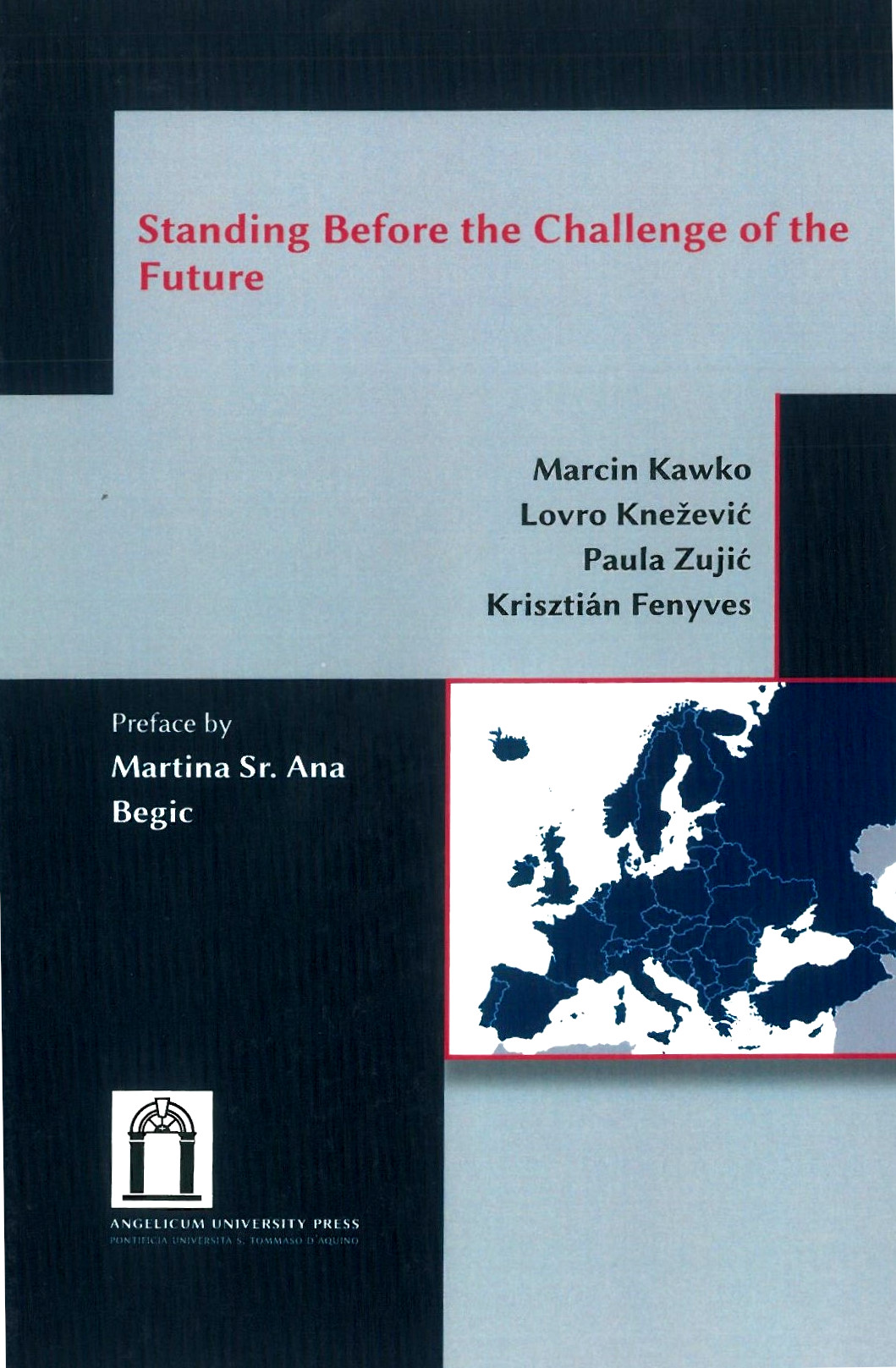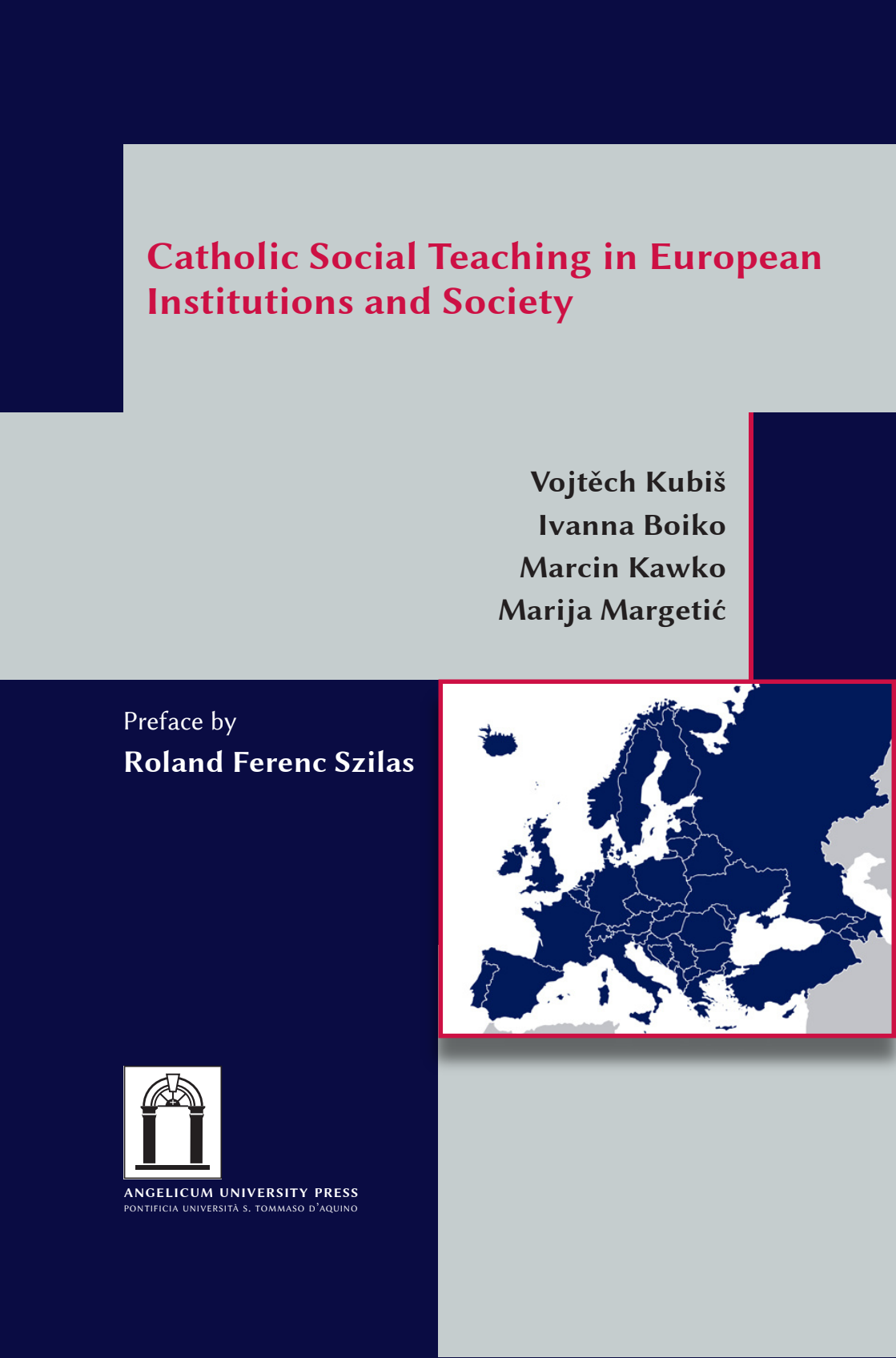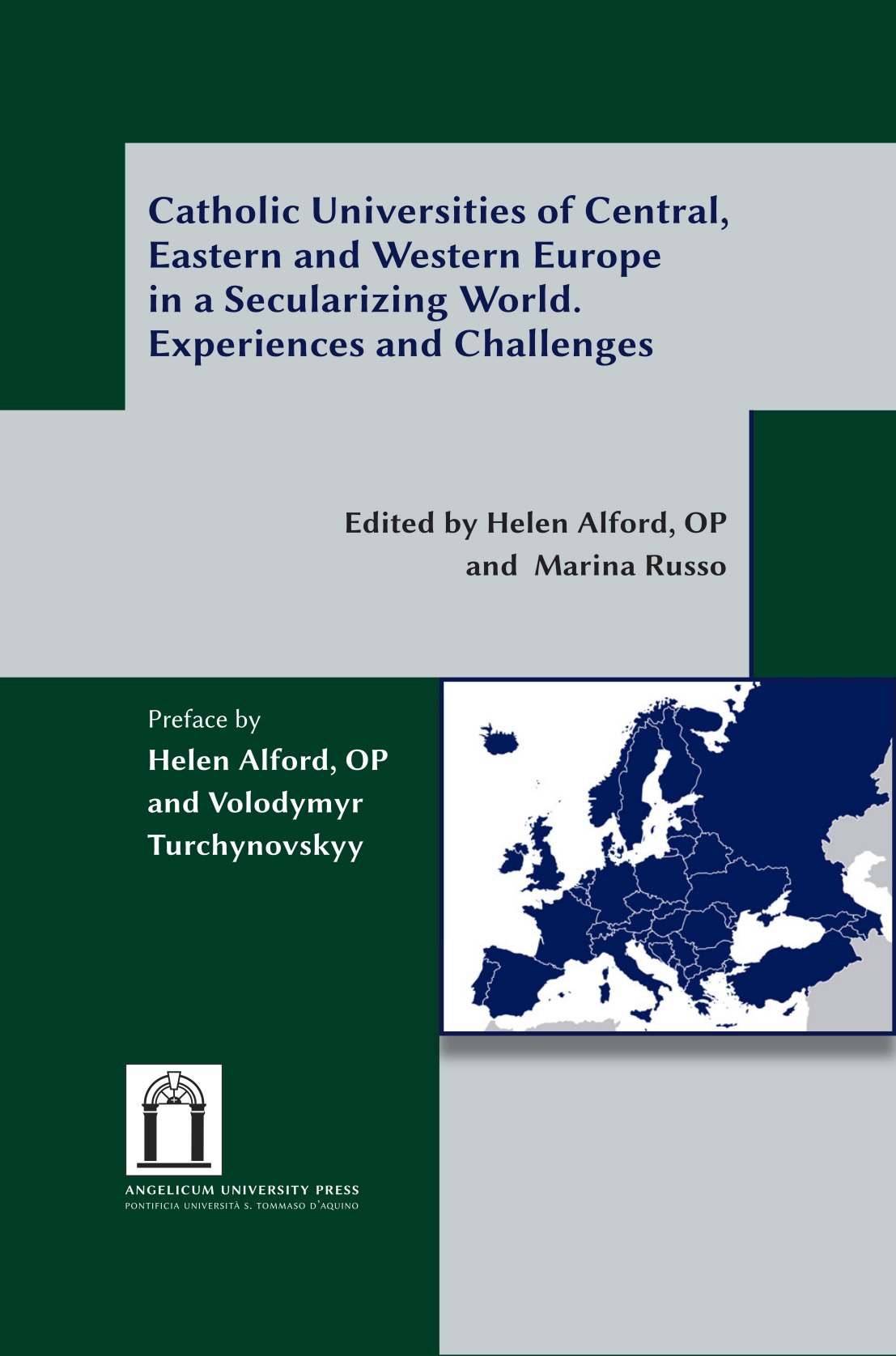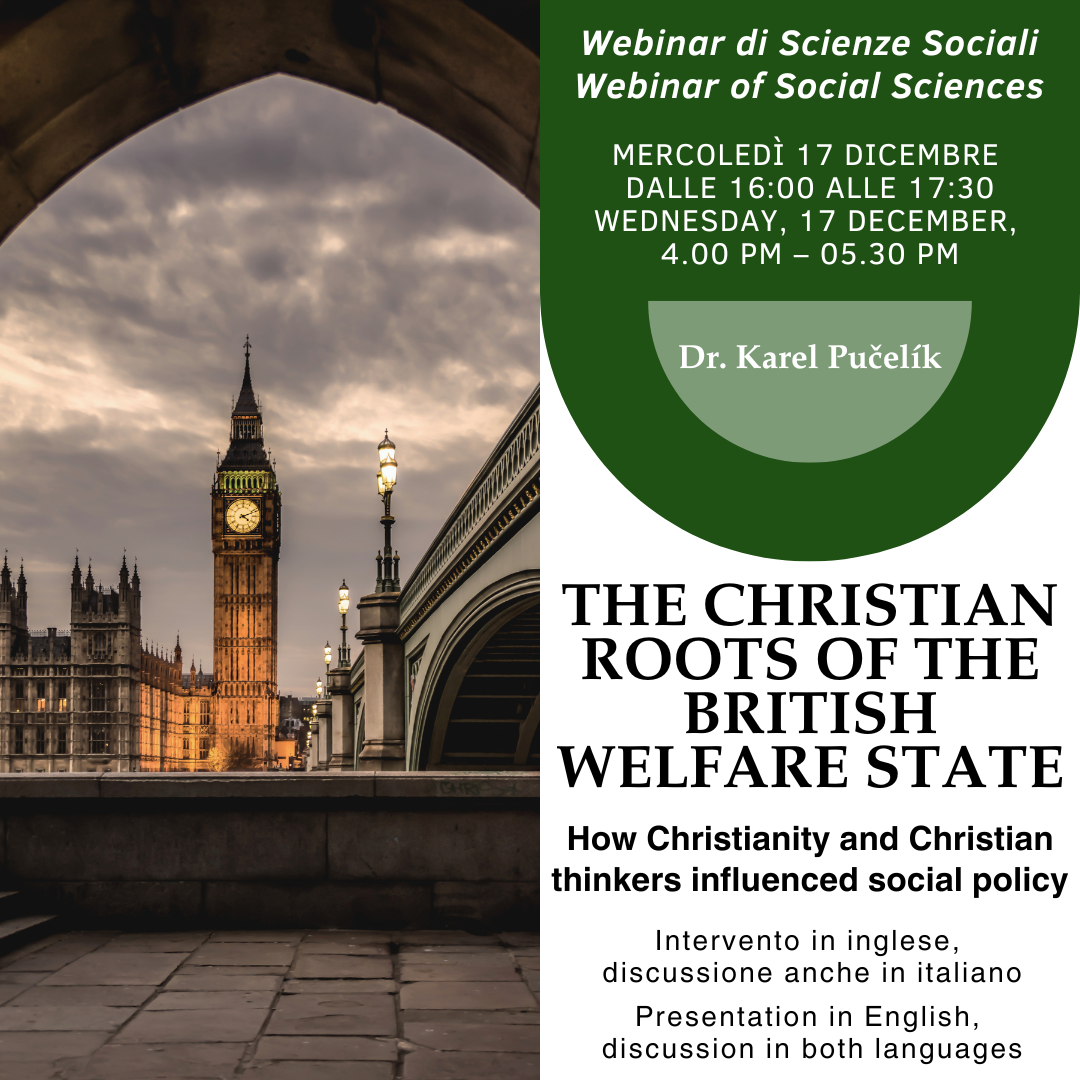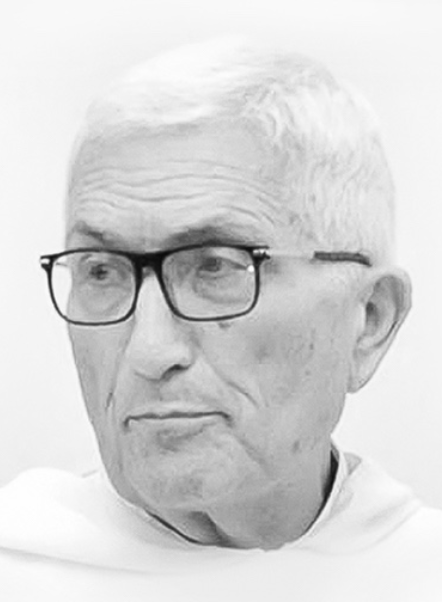Homo Thomisticus and Homo Oeconomicus:
On Economic Freedom
Albino Barrera, O.P.
Introduction
What difference can Thomism make in the real economy? Consider the following two well-established empirical observations. Empirical observation #1: We may note an inflection point in per capita income at the time of the Industrial Revolution. Empirical observation #2: From the 1950s onward, we see a similar clear inflection point in population growth.
Combining these two observations, we may note how the post-World War II era has not only supported the largest population ever, but it has done so at the highest per capita income ever in all human history. This is not even to mention the much longer life expectancy, on average, and the drastic material improvement in the standards of living for the vast majority relative to other periods of human history. On average, people need to expend less hours of labor to secure food, clothing, shelter, and other basic needs. Clearly, science and technology played a pivotal role in such dual advances, but even science and technology themselves have grown exponentially because of the milieu afforded by the marketplace and its extensive freedom of action. Schumpeter’s “creative destruction” is a hallmark of capitalism and its wide freedom of action. Adam Smith wrote in reaction to the rigidity and restrictive nature of mercantilism in calling for greater economic freedom. The butcher, baker, and brewer’s pursuit of their own self-interest eventually rebounds to the good of the community because of the wide sphere of autonomy accorded them by laissez faire capitalism relative to mercantilism.
I am not claiming causation in advancing these observations. Empirical work will have to be done to establish the correlation, much less causation, from wide economic freedom of action to the two empirical observations I noted. All I am claiming is that economic history suggests the potency of the invisible hand and mainstream economic policies regarding expansive freedom of action. The freedom of action of homo oeconomicus is about unleashing the power of private initiative. Economic growth and development are often defined as widening people’s choice set. Development has also been described as freedom—whereby we develop people’s functionings and capabilities so that they are able to pursue their life projects.[1] Development as freedom is about expanding people’s choice set.
Nevertheless, I suggest that the signal accomplishments of the last 250 years—the world supporting the largest population ever and at the highest per capita income in all human history—must be viewed within its much larger context. These signal accomplishments are merely a partial view of a much larger whole. We must consider the price paid for such historic economic growth. We now understand much better the damage done to the ecological system. In addition, most of us here have firsthand experience of the destitution, hunger, illness, illiteracy, violence, and many other ills that lurk behind these two signal empirical observations from the last two and half centuries. This is a problem that comes with relying on averages without looking at the distribution. These ills attest to the inadequacy of economic freedom defined merely as a freedom of action. And this is where Thomism can make a major difference in complementing homo oeconomicus.
Main teachings
In addition to his teachings on the just price, the ownership and use of private property and superfluous income, among many others, St. Thomas offers an overarching cosmology and anthropology that shape every aspect of socioeconomic life. Thomism can make not merely substantive but sweeping contributions to socioeconomic life.
The impact of Thomism on economic theory and praxis is best seen in the difference it makes with respect to our notion of freedom. Observe that in the circular flow chart descriptive of the economy, choice is a perennial task. Households as sources of input must decide how much and to whom to sell their services or their assets to earn income. As consumers, they must decide how to allocate their earnings to satisfy their needs and wants. Businesses for their part also confront decision-making whichever way they turn. As buyers in the input markets, they must choose the optimum combination of factors of production to employ. As sellers in the product market, they must decide what to sell, to whom, where, when, for how much, what quality, and with which production method. In both the input and product markets, there are choices that must be made at every turn as people consummate their transactions—with whom to trade, when, how much, and at what price. Indeed, it is not surprising that economics has sometimes been described as the science of allocation or the science of choice.
Let me contrast the conception of freedom between neoclassical economics and praxis, on the one hand, and Thomism, on the other hand. I will do so by comparing them across seven dimensions. This is by no means an exhaustive presentation. I am only covering materials that will fit within the time allotted to me. By “homo oeconomicus” (HO), I am referring to both the economic agent of neoclassical economics and to the most common conception of market participants in Western capitalism.
1. Nature of freedom
To begin with, for homo oeconomicus (HO), freedom is identical to choice. They are the same set. Choice exhausts everything that can be said of freedom. Choice is all there is to freedom. It is a freedom of action, which also happens to be the most common understanding and practice of freedom in the West. Homo Thomisticus (HT) also affirms the importance of choice in freedom. Choice is a necessary condition of freedom. People must be able to choose if they are truly free agents. However, unlike HO, HT is adamant that while choice is a necessary condition of freedom, it is not a sufficient condition. There is a lot more to freedom than mere choice. Choice does not exhaust everything that can be said of freedom. Choice is merely a subset of freedom. They are not identical sets. We will come back to this at the end of the presentation to find out what else there is in freedom besides freedom of action.
2. Scope and strength of freedom’s claims
Second, let us examine the scope and the strength of the claims that come from these differing views of freedoms. HO enjoys strong, indeed, near absolute claims. They are not absolute because neoclassical economics understands that the marketplace is undergirded by a requisite legal and institutional framework. This is a precondition if the market is to exist at all. For example, markets will not work if there are no enforcement mechanisms for contracts. Aside from these legal and institutional constraints, HO enjoys an extensive set of freedoms, such as, consumer sovereignty in setting and pursuing one’s preferences, the freedom to maximize such consumer preferences, and not having to distinguish between needs and wants (everything is fair game). HO is free to consummate whatever transactions are desired for as long as it is backed up by purchasing power. Anything can be bought or sold in the marketplace for as long as they satisfy the legal and institutional preconditions of the marketplace. Thus, we have the phenomenon of commodification, such as renting a womb in commercial surrogacy or buying a kidney, in jurisdictions where these are legally permissible. As a rule of thumb, the scope of freedom accorded to HO is maximized in a similar fashion to liberalism’s approach of according to each individual maximum freedoms that are consistent with everyone else enjoying the same freedoms.
In contrast, HT has far more delimited freedom. Thomistic ontology not only explains why this is so, but also identifies the boundaries that such freedom may not overstep. Consider the difference between God and the human person vis-à-vis existence. On the one hand, God does not need anything or anyone for God’s existence. Otherwise, God would not be God at all. God guarantees God’s own existence. In fact, God’s existence is eternal. There is no t=0, that is a beginning, for God. In other words, it is in the nature of God to exist. Existence is in the very nature of God, ipsum esse subsistens (ST I, q. 3. a 4; q. 4, a. 2). On the other hand, human beings have a t=0; they have a beginning. They are unable to guarantee their own existence. They do not know what will happen to them in the future, not even in the next minute. They are not a cause unto themselves. They are dependent on so many other things, not only for their existence but also for their operation. It is not in their nature to exist. This is empirical observation #1. We have a second empirical observation that must be juxtaposed to this. Even as it is not in our nature to exist, we nonetheless know that we exist. How do we reconcile these two empirical observations? It can only be that human existence is a conferred existence, a created existence, a borrowed existence—an existence that participates in the existence of the Necessary Being, God.
This contrast regarding the nature of Divine and human existence has ramifications for Divine and human freedom. God’s freedom is absolute. Absolute existence has absolute freedom. God can claim “I am what I will.” In contrast humans, are unable to make a similar claim of “I am what I will.” We may not want to have to sleep because it is a waste of practically a third of the day, but no matter how much we may wish not to sleep, we will nonetheless have to sleep. We may will to be in two places at the same time or to fly unassisted to wherever want, but no matter how much we will these things, we know that they will not happen. Why? Because they are not within the bounds and the capabilities of the human nature that comes with our existence. Consequently, human freedom, including economic freedom, is not absolute. It is merely a participated freedom. It is delimited by our human nature. It is bound by a divine order of creation within which we participate in the existence of the Necessary Being.
3. Freedom and responsibility toward others
HO’s freedom of action is as extensive as its responsibility to others is minimal. Milton Friedman says it well in his famous New York times article “The Social Responsibility of Business Is to Increase Its Profits” (September 13, 1970, Section SM, Page 17). In what has sometimes been called a Friedman doctrine, he notes that the only social responsibility of business is its obligation to its shareholders to maximize its profits. He makes this claim not because he is a proponent of egoism, but because of his belief in the invisible hand so well described in Adam Smith’s butcher, baker, and brewer inadvertently ensuring the provision of the community by pursuing their respective interests. HO does recognize that it is bound by responsibilities. However, this is an extremely limited set of duties—its contractual obligations and those stemming from the legal and institutional preconditions of the marketplace. HO is bound by a minimal set of responsibilities.
In contrast, HT acknowledges that it exists within a much larger divine order of creation. Consider St. Thomas’s twofold order of the universe. The whole universe as a single entity finds its perfection only as it rests in God—the Perfect and the True. Beings tend toward their perfection, their end (telos). The final end of all creation is God, who is their origin to begin with.[2] St. Thomas calls this the external order of his twofold order of the universe.[3] The external order refers to the whole universe as a single entity reaching out for its final end in God. This is the perfection of the universe as a whole, the telos (end) for which it is created and the telos that comes with its participated, contingent existence.[4]
Besides this external order, there is also the internal order of the universe. The whole universe is comprised of a wide variety of creatures, each with its respective nature and power, each with its respective mode of being and operation. Each creature belongs to intermediate groups through which they contribute to the whole of creation and from which they derive benefits.
Each creature of the universe has its contribution to make in the perfection of the universe as a whole. Each creature does its share through the intermediate group(s) to which it belongs in moving the universe to achieve its final end in God. And as each creature or intermediate group contributes to bringing about the external order of the universe, it is then that we achieve the internal order of the universe. Of particular interest to us is the contribution of human beings.
Humans belong to communities through which they contribute to the twofold order and from which they derive benefits. As humans fulfill their respective responsibilities and roles, they promote the good of the communities to which they belong (intermediate groups), and these in turn contribute to the attainment of the good of the whole. In effect, it is through these communities that humans, as individuals, can achieve their moral excellence and their final end. It is through communities that humans contribute to the attainment of the telos of both the internal and external order, and thereby actualize their freedom. Jacques Maritain reminds us that human freedom, while instantiated in the individual, is actualized only in community.[5]
As part of the twofold order of the universe, every human person is bound by moral obligations vis-à-vis other creatures. Every person bears moral responsibilities toward (1) other people and (2) the goods of the earth. Other people and the goods of the earth (indeed, every creature), bear in their existence and communicate in their activity a particular dimension of God’s goodness. The human person’s responsibility in this regard is to facilitate the reflection and conveyance of their share of God’s goodness other creatures, according to their mode of being and operation. This human responsibility becomes even weightier and even more demanding because moral agency is a profound and potent gift that only humans enjoy. Ontologically, the New Testament adage applies just as well: To those to whom much has been given, more will be demanded (Lk 12:48). In concrete terms, and in relation to this presentation, this means that every person bears moral duties toward (1) the goods of the earth and (2) their fellow humans. Not surprisingly, unlike HO, HT is bound by strong and extensive negative and positive duties.
4. Post-choice accountability
A fourth point of comparison is that of post-choice accountability. HO’s choice is not, and cannot be, second-guessed after such choice has been exercised. The import of HO’s choice is not examined by a third party for its consequences or quality. Recall that HO enjoys near absolute claims in its sphere of autonomy. Moreover, the marketplace and HO are governed by utilitarianism in which there are no moral absolutes. De gustibus non est disputandum. HO’s tastes and preferences are unexamined because they are indisputable. People are assumed to choose what is in their own best interest. Otherwise, they will not trade at all in the marketplace if such trade leaves them worse off. Adam Smith’s butcher, baker, and brewer are not questioned over their pursuit of their self-interest. In fact, for HO, there are no socially laundered preferences even if they are anti-social. In other words, HO is not subject to second-guessing for any choice it makes for as long as it is within the bounds of the underlying legal and institutional preconditions of the marketplace. To put it bluntly, it is nobody’s business. HO is bound by a “thin” theory of the good, consistent with its underlying utilitarianism. Moreover, recall that neoclassical economics touts itself as a mere positive, descriptive exercise. It claims to be non-normative. (Assessing this claim is best reserved for another paper given our time constraint.)
In contrast to the static nature of HO whereby choices are not reviewed after they have been made, HT has a dynamic post-choice examination. In fact, this post-mortem is a requirement and not merely optional. It is expected. Recall that HT works out of an acknowledged divine order of creation. It has a “thick” notion of the good that includes moral absolutes. There is a requisite examination of the quality of HT’s choices against this overarching moral backdrop. Furthermore, the impact on human flourishing is always a concern. In addition, the human faculties of will and reason are not given to humans in their perfected form. Humans spend a lifetime of learning-by-doing in getting better with the use of these faculties. The reflexive nature of moral choices makes it imperative that our choices are constantly examined. This is an essential path to growth in virtue. HT welcomes rather than resents such post-choice reviews as opportunities for growth and further development. And, of course, besides such a reflexive impact, our choices have extensive ripple effects on our neighbors and the world around us. Choices are never purely personal because they have a significant constitutive social dimension to them since people are part of a community to which they contribute and from which they derive benefits. Recall the responsibilities that arise from the twofold order of the universe. This social dimension of choice also requires post-choice accountability on our part.
5. Role of reason and will
A fifth point of comparison is the role played by the human faculties in the exercise of choice. For HO, the will is the lead faculty. In fact, only the will is needed because HO is concerned only with exercising choice. “Rational choice” in economics does not mean the use of reason. Rather, rationality as used in neoclassical economics is about the completeness of one’s preference set and consistency in the choices therein. In contrast, HT requires both reason and will to work with each other in making choices. The object of the will is the Good, that which we perceive as perfecting and completing us. The will pursues the Good. However, the will has two significant limitations. To begin with, it cannot distinguish real from mere apparent goods. Consequently, it often pursues what it perceives to be good, but which in reality is a fake good. In addition, the will is unable to do a triage of all the worthwhile goods that are presented to it. It is not equipped or designed to do so.
Reason dovetails with will, in that reason seeks the Truth. The object of reason is the Truth. Consequently, it can differentiate real from apparent goods. Moreover, it is also able to weigh goods relative to each other. Not only can it do a triage of the goods that are worth pursuing in life, but reason is able to go further in identifying the means to get to the goods that it deems to be worth pursuing in life. HT is dependent on the tandem of will and reason as it makes its choices. Thus, freedom for HT is aptly called rational freedom in contrast to HO’s freedom of action. Genuine freedom requires choices that are informed and reasoned. Both intellectual and moral virtues play a vital role in HT’s exercise of economic freedom.
6. To what end?
Our sixth comparison deals with the question: To what end do we exercise our freedom? For HO, this is not even a valid question to ask. After all, it is nobody’s business how HO chooses within the sphere of its autonomy. (Recall consumer sovereignty.) This stems from the “thin” theory of the good that comes along with the claim of both utilitarianism and neoclassical economics that they are non-normative, purely positive exercises. In contrast, for HT, this is not merely a valid question, but it is in fact the very first question that HT asks even as it weighs the triage of choices at hand.
We started out our comparison by noting that for HT, there is more to human freedom than mere choice. So, what else is there in human freedom besides freedom of action? Consider the following three constitutive elements of human freedom.
6.a. Moral excellence
In addition to their initial endowment of existence, creatures embody many other dimensions of God’s goodness. Just as significant, every creature reflects and communicates to the rest of creation such particular divine goodness as is according to its mode of being and operation. Humans, for their part, are unique because of their mode of being and operation—they are rational and free. Moral agency—the faculties of reason and will—allows humans to reflect and communicate God’s perfections and goodness in a very special way.[6] In particular, the informed and intelligent use by human beings of their freedom, their virtues, and the excellence with which they lead moral lives allow them to shine fully in their creation in the image and likeness of God. In other words, humans reflect and communicate the share of God’s goodness they embody through their moral excellence. Ontologically speaking, living up to our moral obligations is about reflecting and communicating the goodness of God to the rest of creation according to our (human) mode of being and operation. This is human freedom at its best. To use the language of neoclassical economics, while HO maximizes its utility function comprised of its preferences, HT is also engaged in a maximization exercise—the “maximization” of its reflection and communication of God’s goodness.
6.b. Participation in Divine Governance and Providence
The moral agency of human beings is what makes their mode of being and operation unique. Through their moral choices, human beings can either contribute to, or take away from, the internal and external order of the universe. Moreover, since they have reason and freedom, human beings are not purely mechanical in their contribution, as is the case of the non-moral creatures of the earth, which contribute to the aforesaid orders just by their existence. In the case of human beings, in addition to their existential goodness (i.e., the goodness they communicate by virtue of their existence), they also have the even more consequential moral goodness that stems from the cumulative reflexive impact of their moral choices. Human beings contribute to the twofold order in the manner in which they exercise their moral agency. In effect, human beings contribute a bit of themselves to the twofold order through their proper use of freedom and reason.
By virtue of their freedom, human beings can choose either to be mediocre or to excel in the use of their reason and will. This mode of being and operation makes them not merely instrumental but secondary causes. Moral agency is what is distinctive of their secondary causality. Through their efforts to achieve moral excellence (a virtuous life and reasoned use of freedom), human beings provide their unique share in bringing about the internal order of the universe. In effect, human beings participate not merely in the existence of the Necessary Being (God), but they also participate as secondary causes in God’s governance and providence of that created divine order. Our secondary causality is our participation in Divine governance and providence.
St. Thomas notes, “the rational creature is subject to Divine providence in the most excellent way, in so far as it partakes of a share of providence, by being provident both for itself and for others” (ST I-II 97.2). Human beings participate in the divine governance of the world as they live up to these moral duties in (1) facilitating other creatures’ attainment of their respective ends (teloi) and in their communication of God’s goodness according to their respective modes of being and operation and (2) in enabling the attainment by their fellow human beings of their shared telos.
6.c. Union with God
HT will settle for nothing less than the highest good—union with God! Servais Pinckaers says it well when he notes that this is a freedom for excellence. This is the crown of human freedom.
Indeed, there is more to human freedom than mere choice.
7. Grace
HO simply takes the world as a set of constraints on its maximization of its preferences. HT also sees and recognizes the same world of constraints. However, HT goes much further in perceiving much more. It sees earthly reality as enveloped in grace. Earthly life is embedded within a much larger reality that is not accessible to the human senses. Human freedom is not a human attainment even given their secondary causality. After all, the real efficient causality of human beings is merely a participated efficient causality (Summa Contra Gentiles Book 3, Questions 69 and 70). Furthermore, moral excellence is a gift of grace. The acknowledgement of grace is yet another major difference between HO and HT in their views of freedom.
In sum, while HT has a much more circumscribed sphere of autonomy with significant negative and positive duties, its rational freedom nevertheless ends up providing a much more substantive, consequential, and enduring freedom.
Back to the original question I had posed: What difference can Thomism make in the real economy? Let me conclude by examining possibilities for what HT and HO together can accomplish if they work hand in hand. The exercise of private initiative is important. Indeed, it is even a moral imperative. We see this in Catholic social thought’s principle of subsidiarity, in which higher bodies do not arrogate to themselves functions that lower bodies or individuals are able to perform. People ought to be able to do what they are able to do for themselves. Nevertheless, HT can channel HO’s private initiatives and even improve them through reasoned and informed choices. HT can help HO get better at making choices in a process of learning by doing through its requisite review of the quality and the consequences of one’s choices. Most of all, HT can illumine HO on the telos stemming from within the larger divine order of creation that envelops us. HT can make its case even in a secular public square because it can make its points using either faith or reason, but ideally both.
Pope Benedict XVI observed that while globalization has made us neighbors, it has not made us brothers and sisters to one another (Caritatis in Veritate #19). HT can show HO not only how this can be achieved, but it can also explain why it is worth pursuing, along with the unimaginable joys that this brings about.
[1] See Sen, Amartya. 1989. “Development as Capability Expansion,” Journal of Development Planning 19: 41–58.
[2] Aquinas (1947/48) Summa Theologica I, Q 19, a.2, reply.
[3] See Wright, John. 1957. The Order of the Universe in the Theology of St. Thomas Aquinas. Analecta Gregoriana 89. Rome: Apud Aedes Universitatis Gregorianae.
[4] Aquinas (1952-54) De veritate Q. 5, a.3.
[5] See Maritain, Jacques. 1947. The Person and the Common Good. Charles Scribner's Sons, New York.
[6] Aquinas (1923) Summa Contra Gentiles III, 20.
 IT
IT  EN
EN 
